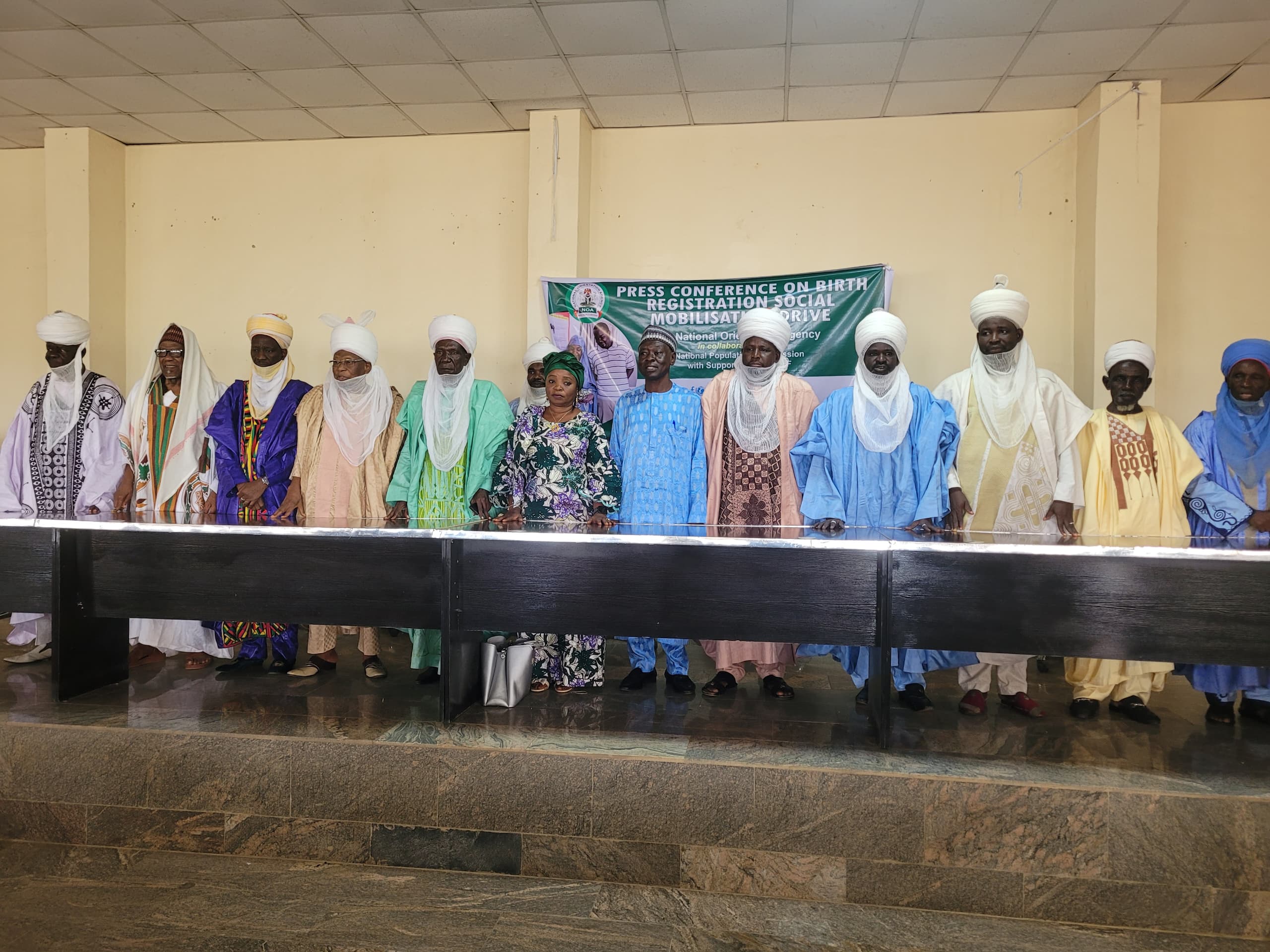National
Benin Republic Is Feeling Heat Of Nigeria’s Subsidy Removal

Benin Republic Is Feeling Heat Of Nigeria’s Subsidy Removal
Sitting on top of a yellow jerry can of fuel, Jeannine waits for customers on a sidewalk in Benin’s economic capital Cotonou, but business is slow. The motorbikes and cars she normally supplies are no longer stopping to stock up on her cheap gasoline, which is smuggled in from neighbouring Nigeria.
Since Nigeria’s new president Bola Ahmed Tinubu abruptly ended his country’s long-standing subsidy on petrol two weeks ago, prices of black market fuel over the border in Benin have also doubled.”
Since this morning, barely five people have stopped,” said Jeanine. “Everyone prefers to go to the petrol station now.”
Two weeks ago, a litre of “Kpayo,” the smuggled gasoline sold on the side of Beninese roads, doubled from 350 to 700 CFA francs (0.5 to 1 euro). That is now higher than the petrol in service stations at the market price of around 650 CFA a litre.
Read Also: “Why I Had Cosmetic Surgery” – Nicki Minaj Reveals
In Nigeria, fuel prices have also tripled since Tinubu ended the subsidies, with food, transport and power prices feeling the knock-on effect. Ending the subsidy was the first measure taken by Tinubu, who sees the subsidies as unsustainable financial waste costing the state billions of dollars a year, and allowing massive smuggling of subsidised gasoline to neighbouring countries.
“Why should we (…) feed the smugglers and be the Santa Claus of neighbouring countries,” Tinubu said last week, justifying the decision, which has been unpopular in Nigeria.
For decades, Nigeria’s low-cost gasoline has been transported illegally by road to its neighbours, primarily Benin, where it is resold on the black market by a multitude of informal sellers.
“You know, this fuel helps feed thousands of people in Benin,” said Jeannine, a 48-year-old widow with five children, who says she does not have savings “to start a new business.”
The scale of the trafficking is such that the price of taxi fares has almost doubled in Cotonou. In Cameroon, another neighbour of Nigeria, several motorcycle taxi unions have gone on strike in protest.
‘Pray to God’
Victorien Assogba Kossi, wearing a yellow shirt like all the zemidjans (motorbike taxis) of Cotonou, wonders “What is wrong with Nigeria…?”
“Is it because the border is closed?” asks the driver who has never heard of Nigerian subsidies.
“We’re going to pray to God that it goes down,” said the 46-year-old man, who says he was forced to cut corn rations for his children when business slowed.
A few kilometres away, Nicolas Evedjere is happy enough. The gas station manager has never sold as much as in recent days.
“We had to close this morning because we had nothing left to sell, our clients have multiplied by ten,” he said smiling while adding he is sad “to see brothers suffer.”
Suppliers had not anticipated such an explosion in demand, he said.
In front of gas stations that still have fuel to sell, long queues are now visible at peak times.
This is good news for the Beninese State, which hopes to increase its tax revenue, as informal sellers do not pay tax.
“In recent years, the Beninese government has encouraged the development of service stations in the country to reduce the importance of contraband gasoline on the market,” Beninese government spokesman Wilfried Houngbedji told AFP.
“If we hadn’t done this, we would currently be facing serious shortages,” he said.
Border closure
The subsidy episode has once again illustrated Benin’s steep dependence on its Nigerian neighbour, a West African giant with 215 million inhabitants, the continent’s largest economy and one of Africa’s top oil producers.
Nigeria’s border with Benin was closed off overnight in 2019 by former Nigerian President Muhammadu Buhari, a shutdown which lasted 18 months and asphyxiated the Beninese economy.
Whether coincidence or not, Beninese President Patrice Talon recently dismissed his foreign affairs minister, replacing him with Shegun Bakari, a Beninese entrepreneur who is of the same Yoruba ethnicity as Tinubu, and who observers say is “close” to his inner circle.
At the Benin border post of Seme-Krake, on the Atlantic coast, the usual hustle of currency traders, sellers, transporters and small traders involved in gasoline trafficking may have slowed, but another activity persists.
Rice imports are officially banned in Nigeria, which is trying to encourage local production.
But on the Nigerian side, past the customs checkpoints, a multitude of cars, their trunks filled with bags of rice arriving from the port of Cotonou in Benin, are unloaded in plain sight and passed into new vehicles for transport into Nigeria.
AFP
Benin Republic Is Feeling Heat Of Nigeria’s Subsidy Removal
National
Peter Obi Dismisses Claims of Accepting 2027 Vice Presidential Role

Peter Obi Dismisses Claims of Accepting 2027 Vice Presidential Role
Peter Obi, the Labour Party’s presidential candidate in the 2023 general election, has refuted claims that he agreed to become a vice-presidential candidate in the 2027 elections. The former Anambra State Governor addressed the issue via a series of posts on his official X account on Saturday, accusing certain groups of misinterpreting his recent interview.
Obi emphasized that his remarks during the News Central TV interview had been deliberately distorted by propagandists, and he reiterated his unwavering commitment to the Labour Party and Nigeria’s progress.
https://www.facebook.com/Ochuwa24news/videos/820328146751630
Clarifying his stance, Obi stated, “I am not focused on 2027 when Nigerians are grappling with hunger, poverty, insecurity, and other urgent challenges.” He noted that he is open to partnerships, but only with individuals whose intentions align with advancing the country, not capturing state power.
Obi further stressed that his priority is to address pressing national issues, including bringing millions of out-of-school children back into classrooms and combating poverty. He categorically denied any agreement to serve as a vice president, saying, “For the avoidance of doubt, I never stated at any time that I would be vice president to anyone.”
Despite the rumors, Obi reaffirmed his dedication to Nigeria’s development, insisting that true progress can be achieved without necessarily holding political office.
Entertainment
Tjay Emerges as Week 7 Head of House in BBNaija, Gains Immunity

Tjay Emerges as Week 7 Head of House in BBNaija, Gains Immunity
Tjay has been crowned the Head of House (HoH) for week seven in the Big Brother Naija (BBNaija) ‘No Loose Guard’ season, becoming the second solo HoH of the competition.
The announcement followed the unpairing of housemates, marking the start of individual gameplay after weeks of competing in duos.
In the week’s challenge, housemates navigated through a maze of laser beams in the arena before transferring mini cubes from one bottle to another.
Tjay, formerly part of Team Beta with his close friend Ben, completed the task in record time, securing his position as the new HoH.
With this win, Tjay gains immunity from eviction for the week, ensuring his safety in the game as the competition heats up.
This victory comes after Onyeka became the first solo HoH in the previous week, following a string of duo HoHs, including Mbadiwe Twins and Team Ndi Nne.
As the show progresses, housemates are vying for the ultimate grand prize of N100 million, with the stakes growing higher each week.
National
NOA launches birth registration campaign in Gombe, urges community participation

NOA launches birth registration campaign in Gombe, urges community participation
The National Orientation Agency (NOA) in collaboration with the National Population Commission (NPC), has begun birth registration sensitisation in Gombe State with a call on residents to embrace the exercise.
The campaign is being supported by the United Nations Children’s Fund (UNICEF).
Speaking at the event in Gombe on Thursday, Mrs Adaline Patari, the state director, NOA, Gombe State office, said the move was to protect the future of children in the state.
Patari said the exercise was a nationwide birth registration social mobilisation drive, aimed at ensuring that every child in Nigeria had access to education, healthcare, and other essential services.
According to her, the drive is focused on registering all children aged 0-5 years and providing them with a National ldentification Number (NIN) free of charge.
She said that the birth registration drive would run from August to November 2024.
“Birth registration is a fundamental right of every child, and this initiative seeks to highlight its importance to the child, the family, the community, and the nation at large.
“Birth registration is the first legal acknowledgement of a child’s existence and is essential for safeguarding their rights and privileges for now and in the future.
“It is the key to unlocking access to basic services such as education and healthcare, which are crucial for a child’s development and future.
“Accurate birth registration is vital for national planning and development, as it provides the government with essential data to plan.
“By registering a child’s birth, families ensure that their children are recognised by the state, which is the first step in protecting them from abuse, exploitation, and statelessness,” he said.
The state director urged parents and guardians to visit the nearest NPC registration centres to register their children.
On his part, the State Director of NPC in Gombe State, Mr. Jude Maigari, said success in birth registration remained a collective efforts of all stakeholders, hence called for all shareholders’ support in this regard.
Maigari said the process was simple and free, requiring only supporting documents such as an immunisation card or an existing birth certificate of a parent or guardian.
He said during registration, every child aged 0-5 years would receive a NIN upon face capturing and birth registration.
He appealed to all traditional, religious and community leaders to drive the exercise in their communities, noting that the civic exercise would impact positively on the wellbeing of their people going forward.
On his part, Alhaji Usman Shettima, district head of Nasarawo and overseeing district head of Gombe pledged to support the drive for the benefits of the people.
Shettima appealed to leaders at the grassroots to ensure that their communities participate in the process.
-

 Business1 year ago
Business1 year agoNew Rates: ‘I borrowed money to finance this business…’ – Petroleum Marketer cries out over Non-supply of products by the NNPCL
-

 Health5 months ago
Health5 months agoOnly 58,000 doctors renewed licence out of 130,000 registered doctors – MDCN
-

 Entertainment2 months ago
Entertainment2 months agoBBNaija Season 9: TAMI Duo Evicted After Low Vote Count
-

 Defence & Security1 month ago
Defence & Security1 month agoOrganisers Demand IGP’s Dismissal Over Fatal Protest Crackdown
-

 Defence & Security1 month ago
Defence & Security1 month ago“Defence Chief Praises Strong Inter-Service Cooperation for Operational Successes”
-

 Business2 years ago
Business2 years agoNew Naira Notes: We Have No Information On The Supreme Court Ruling – CBN
-

 Weather2 months ago
Weather2 months agoNiMet Forecasts 3 Days Thunderstorms, Rain Nationwide
-

 Opinion2 years ago
Opinion2 years agoAddressing Nigeria’s food security challenge through eco-friendly agriculture


